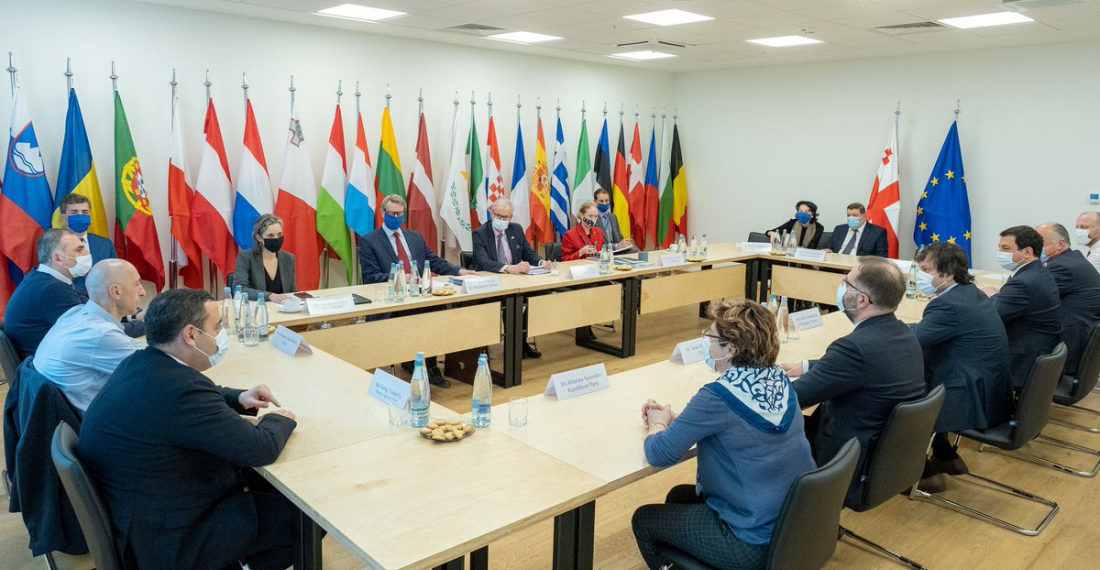The EU-facilitated talks between Georgian political parties were paused on Friday after a 10-hour meeting – mediated by Christian Danielsson, the special envoy of the president of the European Council – ended in the early hours of the morning without agreement.
Earlier Danielsson indicated that some progress had been registered in the talks. Speaking to the Georgian media after the end of a session on Wednesday (17 March), he was quoted by the Georgian media as saying: "I think it is going very well, we worked hard today." Things, however, seem to have turned the other way during the marathon Thursday meeting.
Danielsson has now left Tbilisi for Brussels where he is expected to brief EU officials. Back in Georgia, however, the government and opposition continue to accuse each other for failure in securing an agreement, with the sides apparently still far away from each other on the two main points of contention – early elections and release of political prisoners.
It is not yet known when and under what circumstances Danielsson will return to Georgia.
Whilst the talks in Tbilisi were ongoing this week, a meeting of the Georgia-EU Association Council – the highest level of political consultations between Georgia and the European Union envisaged in the Association Agreement between the two – was held in Brussels on 16 March. Prime Minister Irakli Garibashvili led for the Georgian side, and High Representative Josep Borrell led for the EU.
A final statement spoke warmly about the current state of EU-Georgia relations and prospects for the future. Read the statement on the website of the Council of the European Union here.
The statement dodged the issue of Georgia’s future European perspective, and Georgia’s ambition for EU membership in the medium term. Instead it said:
“Both sides acknowledged Georgia’s European aspirations, its European choice and the common objective of continuing to build a democratic, stable and prosperous country. The Association council welcomed ongoing negotiations on the Association Agenda for 2021-2027 to set priorities for the implementation of the AA/DCFTA. Georgia outlined its plans to further advance on its European integration path by 2024.”







